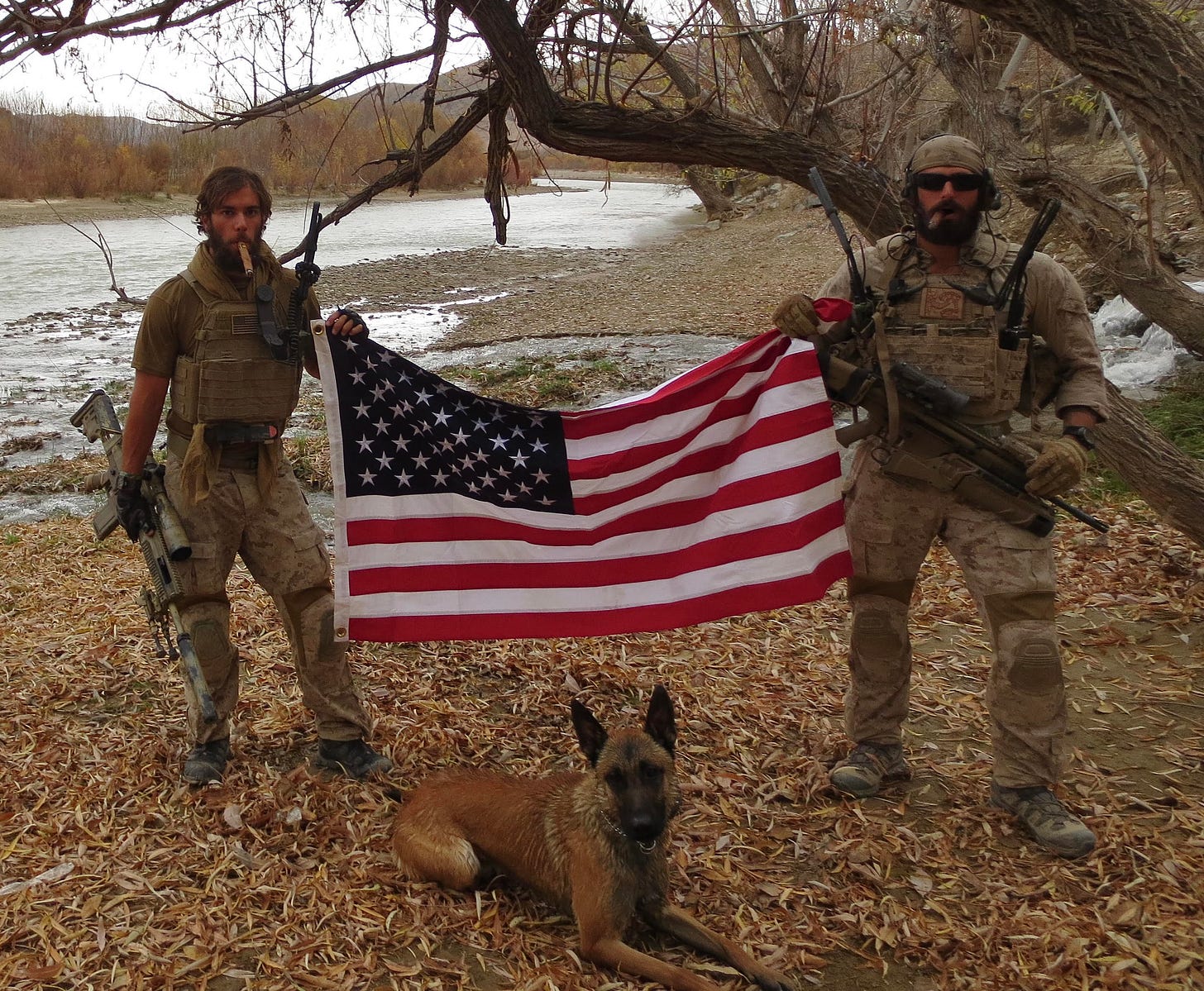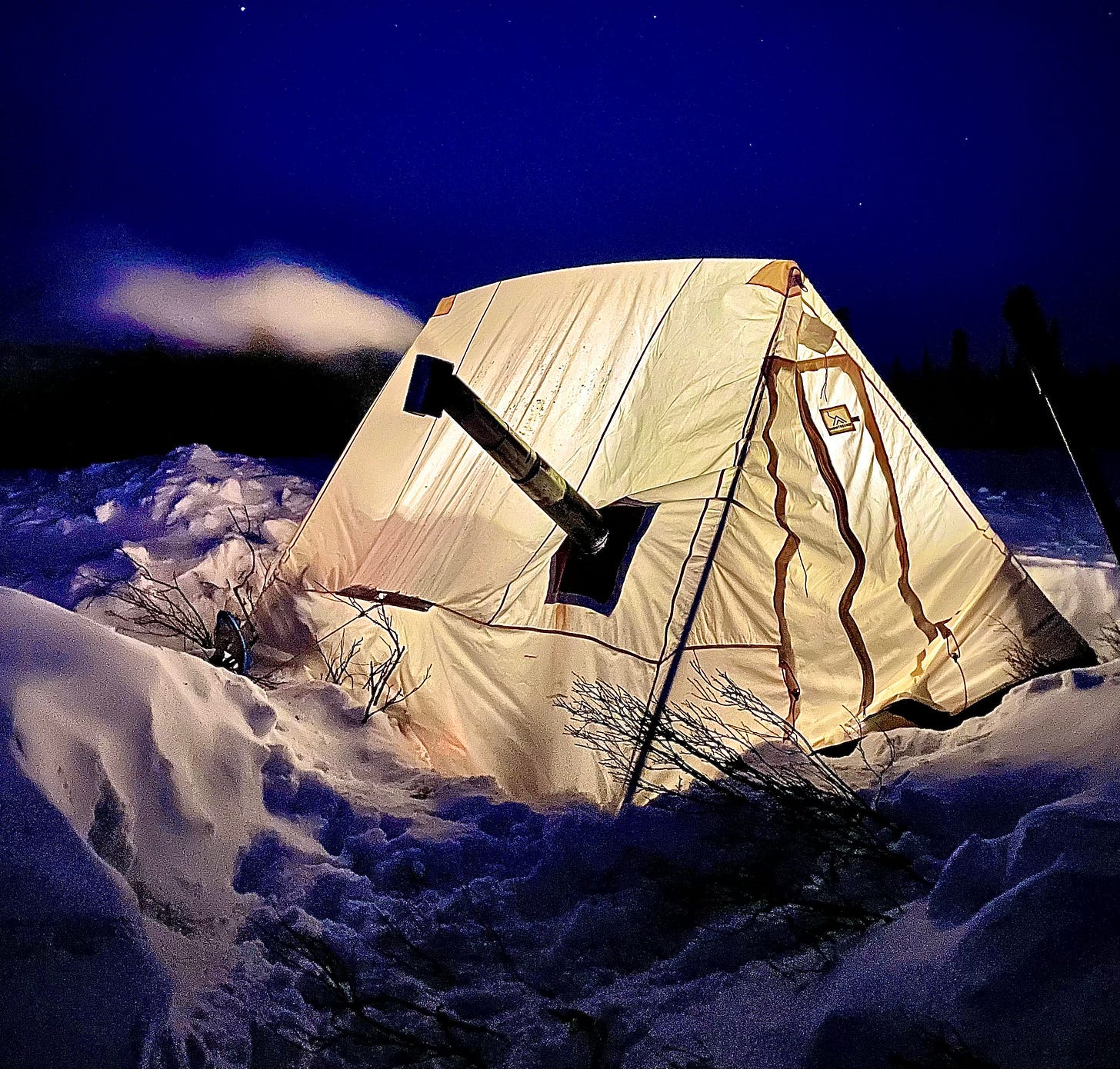How to Find Reverence for Life
Dog mushing, Shackleton, and Andromeda
My friend Jeff Reid is a professional dog musher. We both emerged from the backwoods of Pennsylvania and joined the Navy as teenagers, though we did not know each other at the time. We went through boot camp, BUD/S, SEAL Teams, and deployed together. When we transitioned out of the Navy, we took two different paths: Jeff moved to Alaska and fulfilled his dream of racing in the Iditarod, choosing to stay immersed in nature’s hardships, whereas I did not—but I needed a fix.
I felt a creeping sense of drift, as if life had taken on a sense of sameness, a staleness, and I loathe this sensation above all. It reveals a lack of awe and respect for existence. I was stuck in my head, and I assumed the cure could only be found in the extreme environments I once operated in—sky, sea, tundra, desert.
I called Jeff and said, “I want you to put me in a situation where if I do not pack my bag correctly, then I will die.”
He delivered.
I flew to Alaska and after a crash course in dog mushing during which my sled tipped over and the dogs dragged me through snow, ice, and unbelievably sharp branches, Jeff deemed me worthy of a multi-day mush through Denali with the two of us, our dogs, and our limited gear.
Mushing ever deeper into the tundra, I was reminded of a combat truth I had forgotten: the strength of the gym does not translate to the strength of the field. Jeff put me to shame and this humility felt good. As every muscle in my body was nearing exhaustion, we finally arrived at a spot to spend the night and pitch the tent. No people existed here. No buildings. No ambulances. No electricity. I saw a vast white valley and sprawling evergreen forests. And then as if Nature flicked a switch, every star in the banner of the Milky Way erupted and punctured the pure black arc of the cosmos in explosions of white, yellow, and red,
My task while Jeff fed the dogs was to dig through four feet of icy snow so the tent and its wood stove would not melt the ground beneath us and ruin our night. Pathetically exhausted, I started digging. And sweating. First my jacket came off in the -10º air, then my shirt, my gloves, my snow pants, until I was dripping sweat and grunting with a savage pleasure. Each shovel full pulled me bit by bit out of my skull and back into the world, my inner dialogue reduced to “just one more shovel full, just one more shovel full…” until each individual shovel full became an eternity of here-and-now.
At last, my task was complete. My muscles were jellified. I laid down with my bare back on the frozen snow and gazed in awe at the spectacle: the aurora borealis and its purple, pink, and green tendrils wove a fugue above me. I could have reached out and touched it if it did not feel so good to let my arms lie lifeless on the ground. At last, life was simple again. At last, I was no longer inside of my skull and at odds with the world around me—it was me, brother, snow, mutts, aurora, and galaxy as one inhaling, exhaling, conscious organism, one small part of a larger whole. Mind and matter merged.
I felt like I had come home after a long wandering.
It was, in a word, reverence.
I love this word and I do not think it is used often enough.
My hunch is there is a reason why.
Why, then, do we often find such reverence in the ungentle grip of nature and such irreverence when free from it?
A man well versed in nature and her hardship wrote of it with such masculinely laconic language I can feel my testosterone rise with each succeeding sentence. Sir Ernest Shackleton wrote of his ruinous Antarctic expedition in which he and his men watched their ship, the Endurance, slowly warp and split and sink when it was trapped and tormented by ice floes. They then survived for months on a floating slab of ice as it broke and melted beneath their feet, boarded three life rafts, sailed to a deserted arctic island, braved eight hundred miles of the most violent seas on earth in a twenty foot boat, and then trekked across a land mass no human had ever transversed in order to reach a whaling station and safety.
At the end of it all, he allowed himself a moment of poetry: “We had seen God in his splendours, heard the text that Nature renders. We had reached the naked soul of man.”1
Yes.
Reverence.
Shackleton’s three part revelation is a way to approach an answer to our question.
So what is it to see God in his splendours? It is to see nature for what she is: that which can kill us in all her savage glory. At any moment a grizzly, a wicked blizzard, or a Chicxulub-sized space rock can disappear us, and none of it is in our control. And yet all of it reminds us we are not dead. Nature is unique in that she may take our lives away with a silent cosmic sigh and at the same time she offers us that which nourishes us—that which is godlike: cold clear creek water, a moose strolling in solitude beneath the moon, a cosmos that reveals our smallness and the unlikely fact of our existence as if it were a biblical revelation. My flood of reverence was not due to looking at the forest, ice, moose, moon, and aurora, but seeing them for what both they and I were: part of a whole.
What is the text that Nature renders? Well, what did she say to me on that night? To you, the contents of your mind are of grave importance; to the moon, they are not worth two fucks. You care more for what is in your bag than what is in your skull, while the former is merely life-and-death and the latter is life-and-living-death. She shattered my fictions and shook me awake with those brutalized muscles and that ego-slaughtering sense of smallness.
And what is it to reach the naked soul of man? It is to strip away every artificial construct of modernity: each craving, aversion, and possession. It is to strip away everything that is not bone and breath and soul and see what remains: our command of the present moment. The smallness of our place in the cosmos is precisely that which amplifies the mightiness of our ability to suffer, and suffer beautifully against all odds. What else is ours? What else has been given to us in our time here? What is left but the satisfaction of merely surviving each second, which makes the next second of lying on the -10º earth a revelation, and the next second of eating a wood fired moose steak a rhapsody, and each next second a gift?
This, then, is why we find irreverence outside of nature’s grip: because it is now possible to look and not see. What was once a must is now a choice.
My paltry mush in Alaska was a million times less difficult than Shackleton’s gauntlet in the Arctic or Jeff’s Iditarod, and yet it was still profound. Is this not true of trials a million times less difficult than my own? It is—if we learn to see God, hear nature, and reach the naked heart within ourselves no matter where we are.
A walk in the woods in a chorus of cicadas is enough. Picking a fig or melon off a stem is enough. Merely stopping and looking up is enough. One way I tap into reverence is interstellar and takes about three seconds. The light of the Andromeda galaxy takes over two millions years to reach us in the form of a grey smudge in our night sky. That grey smudge is actually two million years in the past. This means the light Andromeda is currently emitting will not reach earth until we have been dead for two millions years.
No more than this can put the contents of our skulls in perspective and lend a bit of reverence.
To help What then? reach more readers, please consider adding a like, restacking, and sharing this essay to help spread the good word.
And if you feel called to support my mission, please consider becoming a paid subscriber.
Shackleton, Ernest Henry. South: The Story of Shackleton's Last Expedition, 1914-1917. Macmillan, 1962.





“the strength of the gym does not translate to the strength of the field.” Amen brother! This shows when the you know what hits the fan.
One of your best pieces. We must have self-confidence and drive, even as we recognize how little we are relative to the universe. Reverence can't just be for something, it must come from someplace. Reverence is our souls finding their place in a magnificent universe.